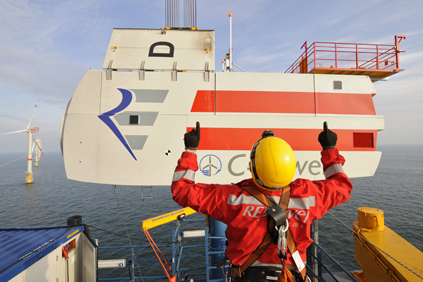Speaking to Der Spiegel, RWE's upcoming chief executive Peter Terium said the company had been in discussions with grid operator TenneT over delays connecting the project. It is expected to be connected year later than planned.
Terium said the issue "seriously jeopardised the profitability of the project". He added that German plans to hit its offshore target for 2020 were in danger unless the issue was resolved. RWE was unable to comment on the Terium's comments.
This is not the first time RWE's management has spoken out. At the company's AGM earlier this year, Terium said connection issues are "hindering renewables expansion in Germany". Terium is due to take the helm at RWE on 1 July.
Outgoing RWE chairman Jurgen Grossmann said at the same event: "The delayed connection binds up capital and causes additional expenditure at the plant - €1 billion in investment will be idling. To avoid problems, the turbines have to turn and it may involve installing diesel aggregates to provide the power to turn them. The costs can amount to over a one hundred million euro figure per year.
"It's unbelievable. If it remains as bad as this no further offshore projects will be built. We have discussed this with the environment and economic ministers, and a working group has been set up," he added.
TenneT's problems in connecting offshore wind farms have been well documented. In February it warned the construction of an offshore grid in the German part of the North Sea cannot be implemented under the current regulatory system.
The company informed the German ministries for economic affairs and the environment "that the construction of connecting cables for offshore wind farms in the German part of the North Sea is no longer possible under current conditions."
Nordsee Ost is set to be completed in 2013. It will consist of 48 Repower 6.15MW turbines.

.png)


.png)










